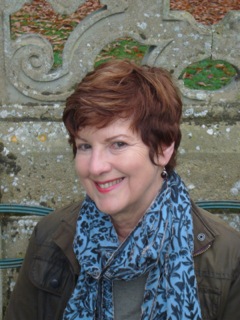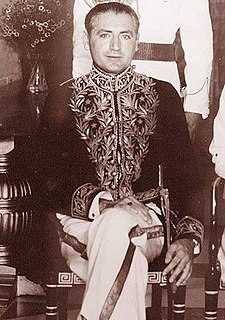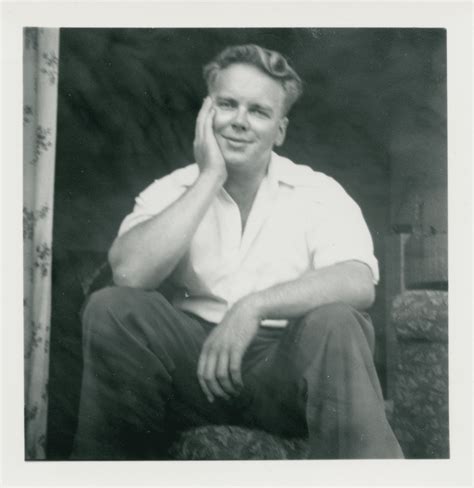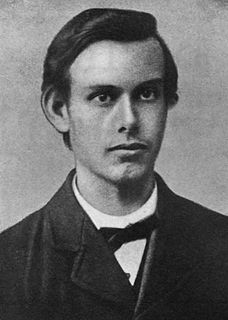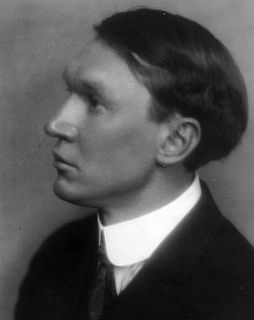A Quote by Cormac McCarthy
They rode on and the sun in the east flushed pale streaks of light and then a deeper run of color like blood seeping up in sudden reaches flaring planewise and where the earth drained up into the sky at the edge of creation the top of the sun rose out of nothing like the head of a great red phallus until it cleared the unseen rim and sat squat and pulsing and malevolent behind them.
Related Quotes
Colored lights shone right across the northern sky, leaping and flaring, spreading in rainbow hues from horizon to zenith: blood red to rose pink, saffron yellow to delicate primrose, pale green, aquamarine to darkest indigo. Great veils of color swathed the heavens, rising and falling as light seen through cascading curtains of water. Streamers shot out in great shifting beams as if God had put his thumb across the sun.
The dawn came - not the flaming sky that promises storm, but a golden dawn of infinite promise. The birds came flying up out of the east in wedge-shaped formation, and the mist lifted in soft wreaths of sun-shot silver. Colour came back to the world. The grass glowed with a green so vivid that it seemed pulsing, like flame, from some hidden fire in the earth, the distant woods took on all the amazing deep crimsons and purples of their winter colouring, the banks were studded with their jewels of lichens and bright moss, and above the wet hedges shone with sun-shot orbs of light.
SUN, MOON, AND STARRY SKY Early summer evenings, when the first stars come out, the warm glow of sunset still stains the rim of the western sky. Sometimes, the moon is also visible, a pale white slice, while the sun tarries. Just think -- all the celestial lights are present at the same time! These are moments of wonder -- see them and remember.
Cold air rises from the ground as the sun goes down. The eye-burning clarity of the light intensifies. The southern rim of the sky glows to a deeper blue, to pale violet, to purple, then thins to grey. Slowly the wind falls, and the still air begins to freeze. The solid eastern ridge is black; it has a bloom on it like the dust on the skin of a grape. The west flares briefly. The long, cold amber of the afterglow casts clear black lunar shadows. There is an animal mystery in the light that sets upon the fields like a frozen muscle that will flex and wake at sunrise.
Night falls. Or has fallen. Why is it that night falls, instead of rising, like the dawn? Yet if you look east, at sunset, you can see night rising, not falling; darkness lifting into the sky, up from the horizon, like a black sun behind cloud cover. Like smoke from an unseen fire, a line of fire just below the horizon, brushfire or a burning city. Maybe night falls because it’s heavy, a thick curtain pulled up over the eyes. Wool blanket.
I don't think there's anything on this planet that more trumpets life that the sunflower. For me that's because of the reason behind its name. Not because it looks like the sun but because it follows the sun. During the course of the day, the head tracks the journey of the sun across the sky. A satellite dish for sunshine. Wherever light is, no matter how weak, these flowers will find it. And that's such an admirable thing. And such a lesson in life.
I wanted to walk straight on through the red grass and over the edge of the world, which could not be very far away. The light and air abot me told me that the world ended here: only the ground and sun and sky were left, and if one went a little farther there would only be sun and sky, and one would float off into them, like the tawny hawks which sailed over our heads making slow shadows on the grass.
During college, when I was working full time for my father [the decorator Mark Hampton], I rented an apartment and I just couldn't take time off to paint it. So I went there one evening and stayed up all night painting the place what I thought was a lovely pale yellow. When the sun came up, I realized I'd painted the walls the color of insanity. I had to immediately mix in all my trim color to tone it down. Yellow is an electric color and wholly misleading. It becomes more yellow with the sun's yellow light on it. The moral is, even if you think your yellow is the one, go paler.
Summer set lip to earth's bosom bare, And left the flushed print in a poppy there: Like a yawn of fire from the grass it came, And the fanning wind puffed it to flapping flame. With burnt mouth red like a lion's it drank The blood of the sun as he slaughtered sank, And dipped its cup in the purpurate shine When the eastern conduits ran with wine.
The sun is a huntress young,
The sun is a red, red joy,
The sun is an Indian girl,
Of the tribe of the Illinois.
The sun is a smouldering fire,
That creeps through the high gray plain,
And leaves not a bush of cloud
To blossom with flowers of rain.
The sun is a wounded deer,
That treads pale grass in the skies,
Shaking his golden horns,
Flashing his baleful eyes.
The sun is an eagle old,
There in the windless west.
Atop of the spirit-cliffs
He builds him a crimson nest.
He lowered the window, and looked out at the rising sun. There was a ridge of ploughed land, with a plough upon it where it had been left last night when the horses were unyoked; beyond, a quiet coppice-wood, in which many leaves of burning red and golden yellow still remained upon the trees. Though the earth was cold and wet, the sky was clear, and the sun rose bright, placid, and beautiful.

